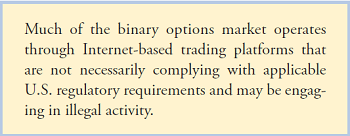Trading in a specific security option on a stock exchange has been halted, triggering a temporary suspension of buying and selling activity. This unexpected event can cause significant anxiety among investors and traders, leaving them uncertain about the underlying reasons and potential repercussions. In this article, we will delve into the what, why, and how of trading halts, equipping you with the knowledge to navigate these situations confidently.

Image: letsworkonline.net
Understanding Trading Halts
Trading halts are temporary pauses in trading imposed by stock exchanges to address specific events or conditions. They are typically triggered to prevent disorderly trading, protect investors from potential harm, and ensure the smooth functioning of the market. Causes for trading halts vary but commonly include:
- News Announcements: Significant news items, such as company earnings reports or regulatory actions, can trigger trading halts to give investors time to process the information and make informed decisions.
- Market Volatility: Extreme price fluctuations or unusually high trading volume can also lead to trading halts to stabilize the market and prevent panic selling or buying.
- Technical Issues: In rare cases, technical glitches or system failures can lead to trading halts to prevent incorrect trades or data errors.
How Trading Halts Affect Investors
Trading halts impact investors in several ways:
- Order Cancellations: All open orders for the affected security are typically canceled during the trading halt, leaving investors unable to buy or sell their positions.
- Price Uncertainty: Halts introduce price uncertainty, as investors are unsure of where prices will move once trading resumes. This uncertainty can lead to anxiety and missed trading opportunities.
- FOMO (Fear of Missing Out): Investors may experience FOMO during a trading halt, fearing they will miss out on favorable price changes when trading resumes. It’s important to exercise patience and avoid making impulsive decisions based on speculation.
Expert Insights and Actionable Tips
When faced with a trading halt, experts advise:
- Stay Informed: Monitor news outlets and company announcements to understand the reason for the halt and its potential implications.
- Assess Your Position: Review your existing positions in the affected security and consider your risk tolerance. If necessary, adjust your trading strategy accordingly.
- Don’t Panic: It’s crucial to remain calm and avoid making rash decisions. Panic selling or buying can often lead to poor investment outcomes.
- Consider Alternative Trading Options: While trading in the affected security is suspended, explore potential alternative investments or trading opportunities in other markets.
- Seek Professional Advice: If you’re unsure about how to respond to a trading halt, consult with a trusted financial advisor who can provide personalized guidance.
Conclusion
Trading halts are a natural part of stock market dynamics, designed to protect investors and maintain market stability. By understanding the reasons behind trading halts and adopting proactive measures, investors can navigate these situations confidently and make informed decisions. Remember to stay informed, assess your position, and avoid making emotional or impulsive trades. With the right knowledge and strategy, you can emerge from trading halts stronger and wiser, prepared for the ever-evolving nature of the financial markets.

Image: unbrick.id
Trading Halted On This Security Options

Image: www.dumblittleman.com






